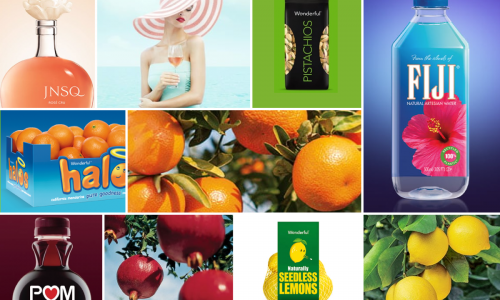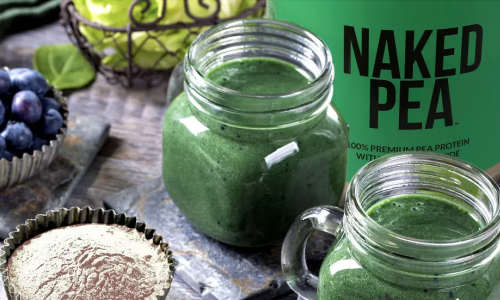Anyone who’s ever debuted a new brand at the world’s largest trade show for natural products, Natural Products Expo, knows it takes a lot of hard work and heart to bring a product to life.
Although entrepreneur Griffin Spolansky may be young compared to other founders in the competitive food industry (he recently graduated college), he’s already gained a wealth of brand building experience with the upcoming launch of Mezcla, a vegan, gluten-free protein bar that favors the flavors of international ingredients, such as Japanese Matcha Vanilla Crunch, Mexican Chipotle Hot Chocolate, and Peruvian Cocoa Peanut Butter.
The idea for Mezcla began when Spolansky attended a social entrepreneurship class at the University of Virginia (UVA) that emphasized how businesses could — and should — operate as socially conscious entities. The class heard from different guest lecturers every week, each representing different backgrounds and varying levels of success, but all shared one common attribute: each had incorporated a social mission into their respective business models. One guest, in particular, struck a chord with Spolansky.
“One of the lecturers was a woman who immigrated to America from Mexico over 10 years ago,” Spolansky said, reflecting on his class. “She spoke about her struggles coming to America — specifically, how she felt lost and isolated from her culture in the States and how she turned to making and selling granola infused with ingredients from her hometown. I reached out and we created a friendship around food; I would go to her kitchen and we’d bake, trying to create a product that captured the essence of what reminded her of her home in Mexico. I knew then that I wanted to create something that gave people an outlet for expression. I wanted to build it with a company that I could weave a social mission into, and just like that, Mezcla, was born.”
As a student at UVA, Spolansky was able to leverage his network of fellow students, professors, coaches, and friends to serve as informal focus groups to guide him through iterations of ideas. After many conversations and hours of brainstorming, Spolansky decided that building a platform for people to showcase their artistic creations would allow the outlet for expression he initially sought to create. The prospect of combining art with food generated a lot of excitement, especially giving a protein bar — a traditionally straightforward, activity-based snack — personality by celebrating diversity through art.
“Everyone wanted to be a part of it — especially me,” Spolansky said. “So, I turned down a job offer to the disappointment of my parents and decided to pursue Mezcla full-time.”
The result was Mezcla’s unique and interactive packaging: a QR code prominently featured in the center of each bar that, when scanned, takes consumers to a digital art gallery, featuring submissions from the Mezcla community.
As Spolansky explains, “our QR code is where we give our community an outlet for creative expression. Whether you’re a child, student, amateur or professional artist, you can submit to have your art featured in our digital gallery. The QR is where you can be… you!”
“The idea was to deliver exciting food paired with a platform where people could express themselves and be part of something bigger,” says Spolansky.
With a strong idea of where he wanted to take the company, Spolansky now faced a new set of challenges and looked to build a talented, diverse team. For his first hire, Spolansky selected Matterful Brands, a purpose-driven branding, packaging, and web design agency to design the bar’s packaging. However, after a conversation with the agency’s founder and current FIT Professor, Joey Rosa, it was clear Mezcla needed more than just packaging design.
The project was just the right undertaking for Rosa, who had recently founded Matterful Brands, after 15 years of bringing brands to life at the intersection of purpose and consumer packaged goods. Under Rosa’s direction and collaborative ideation, Mezcla was able to push the envelope with a strong visual foundation and unique product strategy. Then came the addition of new team members, June Ramadan, an industry veteran who runs the company’s content department, and Evan Lee, a recent graduate of Princeton University who leads growth. Now, with a unique and exciting idea and a strong team in place, Mezcla is ready and eager to launch.
“With three delicious flavors, a powerful platform, and a commitment to giving back, we are really confident in our value proposition and in what we are delivering to our consumers,” says Lee.
“It’s just so unique,” Rosa said about the product, “there is nothing on the market like Mezcla, and we are thrilled to pioneer this community-centered CPG concept.”
What started as a way to distribute art has evolved into a movement that addresses the need for representation, artistic expression, and good-for-you, convenient snacking. “We needed to create a strong business, but also one that valued connecting people and giving back,” Spolansky said. Sticking to this mantra, the company will be giving a portion of proceeds in the form of art supplies to underfunded schools across the U.S.
Mezcla already has an innate ability to connect people: Spolansky and Rosa have proven to be fast friends and have launched a strategic partnership between their respective companies. The two will launch Mezcla at Expo West together in Anaheim, Calif. on March 3-7.
Mezcla bars are expected to hit shelves in select retailers nationwide in June 2020.






